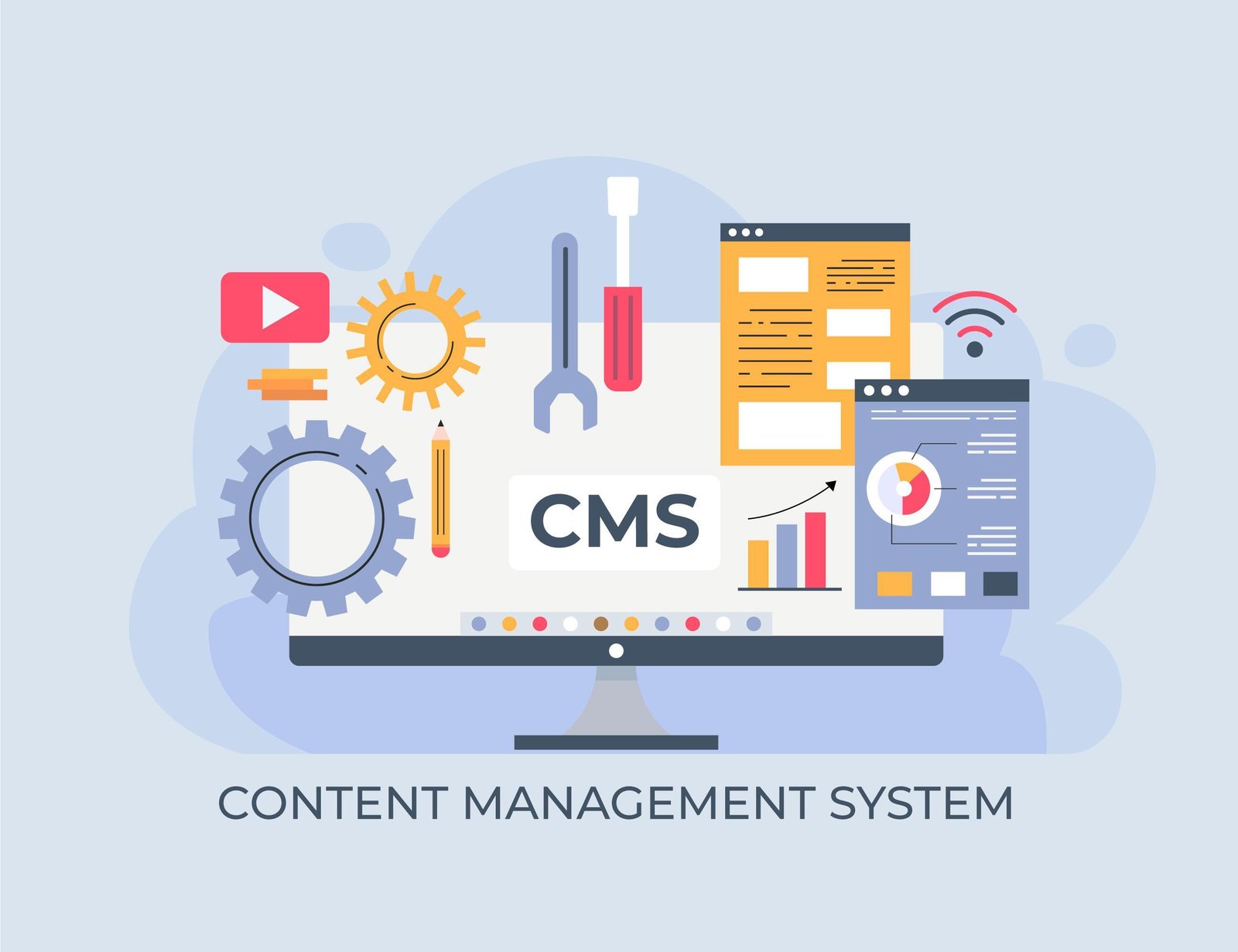User-Friendly Interfaces:
CMS platforms often feature intuitive dashboards, enabling users with little technical expertise to create and manage content without needing extensive coding knowledge.

Content Management Systems (CMS) are powerful tools that enable businesses to create, manage, and publish digital content effortlessly. A robust CMS allows users to easily update website content, streamline collaboration among teams, and maintain consistent branding. By leveraging a CMS, organizations can enhance their online presence, improve user engagement, and keep content fresh and relevant.
CMS platforms often feature intuitive dashboards, enabling users with little technical expertise to create and manage content without needing extensive coding knowledge.
A CMS allows multiple users to work on content simultaneously, facilitating collaboration among teams and ensuring efficient workflow management.
Many CMS solutions come equipped with built-in SEO tools, helping businesses optimize their content for search engines and improve visibility, driving more organic traffic to their websites.
Content Management Systems (CMS) are essential for businesses looking to manage their digital content efficiently and effectively. By adopting a CMS, organizations can streamline content creation, enhance team collaboration, and improve their online visibility. This strategic investment not only saves time and resources but also positions companies to adapt to the ever-changing digital landscape, ensuring they remain competitive and relevant.








